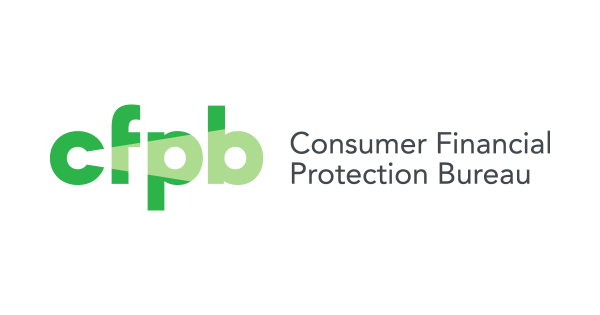
Auto Loan Company Failed to Provide Redress for Illegal Collection Tactics
Washington, D.C. —(ENEWSPF)—April 27, 2017. The Consumer Financial Protection Bureau (CFPB) today took action against Security National Automotive Acceptance Company (SNAAC), an auto lender specializing in loans to servicemembers, for violating a Bureau consent order. In 2015, the CFPB ordered SNAAC to pay both redress and a civil penalty for illegal debt collection tactics, including making threats to contact servicemembers’ commanding officers about debts and exaggerating the consequences of not paying. SNAAC violated the 2015 order by failing to provide more than $1 million in refunds and credits, affecting more than 1,000 consumers. Today’s consent order requires SNAAC to make good on the redress it owes to those consumers and pay an additional $1.25 million penalty.
“This company violated a Bureau order when it failed to get money back to servicemembers it had hounded with illegal debt collection tactics,” said CFPB Director Richard Cordray. “We are making sure this company finally rights its wrongs.”
SNAAC, based in Mason, Ohio, is an auto-finance company that operates in more than two dozen states and specializes in loans to servicemembers, primarily to buy used vehicles. In June 2015, the CFPB sued SNAAC for aggressive collection tactics against consumers who fell behind on their loans. If servicemembers lagged behind on payments, SNAAC’s collectors would threaten to contact—and in many cases did contact—their chain of command about their debts. Also, the company exaggerated the consequences of not paying. For instance, they told some consumers that failure to pay could result in action under the Uniform Code of Military Justice, demotion, discharge, or loss of security clearance. But these consequences were extremely unlikely. The CFPB alleged that SNAAC’s aggressive tactics, which took advantage of servicemembers’ special obligations to remain current on debts, victimized thousands of borrowers.
In October 2015, a CFPB consent order found that SNAAC had indeed engaged in unfair, deceptive, and abusive acts and practices while collecting on these auto loans. The order required SNAAC to pay $2.275 million in consumer redress through credits and refunds, and a $1 million civil penalty. Consumers with an account balance were to receive credits to their accounts, and consumers with a zero balance were to receive cash refunds. While SNAAC submitted two plans that claimed to provide the full amount of redress ordered, both were designed to underpay such redress. Acting on a tip from a servicemember’s father, the CFPB discovered that SNAAC had issued worthless “credits” to hundreds of consumers and failed to provide proper redress to many more.
The CFPB is issuing today’s consent order against SNAAC for violating the terms of the 2015 consent order by failing to properly give refunds or credits to affected borrowers. In today’s order, the CFPB found that the company had failed to meet its obligation to pay redress to consumers by:
- Issuing worthless “credits” to settled-in-full accounts: In purporting to provide redress, SNAAC treated accounts that were settled-in-full as having a positive account balance. Instead of providing refunds to consumers with settled-in-full accounts, SNAAC issued worthless account “credits.” Those consumers received no benefit from such a “credit” because they no longer owed SNAAC money and could not use such a credit toward any new or existing loan.
- Issuing worthless “credits” to discharged accounts: SNAAC also issued worthless account “credits” to consumers whose debts had been discharged in bankruptcy, and who no longer owed SNAAC money on their auto loan. SNAAC had no legal claim to any unpaid balance, and these consumers received no benefit from the “credits.” SNAAC had, in fact, already stopped collections on these accounts.
- Failing to properly give redress to consumers making payments under settlement agreements: Some SNAAC consumers were making payments under settlement agreements. But SNAAC based redress on the original, higher account balance in place before it agreed on a settlement with the borrower. As a result, in many instances, SNAAC issued credits that exceeded consumers’ settlement balances, rather than refund any amount above what the consumers actually owed. And because their settlement balances were improperly credited, some consumers unwittingly overpaid SNAAC to settle their accounts.
Enforcement Action
Under the Dodd-Frank Act, the CFPB is authorized to take action against institutions engaged in unfair, deceptive, or abusive acts or practices, or that otherwise violate federal consumer financial laws. Under today’s consent order:
- SNAAC must pay redress as promised to affected consumers: SNAAC must pay the Bureau roughly $720,000, which the Bureau will send as refunds to about 925 consumers. SNAAC must issue about $370,000 in new credits to over 1,000 consumers with remaining account balances as well as properly credit roughly 1,000 consumers making payments under settlement agreements. SNAAC must also pay $75,000 to the Bureau to cover the costs of distributing these payments.
- SNAAC must pay a $1.25 million penalty: SNAAC must pay a penalty of $1.25 million to the CFPB Civil Penalty Fund, in addition to the $1 million penalty it paid under the 2015 consent order.
The text of the consent order is found here: http://files.consumerfinance.gov/f/documents/201704_SNAAC-consent-order.pdf
###
The Consumer Financial Protection Bureau is a 21st century agency that helps consumer finance markets work by making rules more effective, by consistently and fairly enforcing those rules, and by empowering consumers to take more control over their economic lives. For more information, visit consumerfinance.gov.
Source: www.consumerfinance.gov








